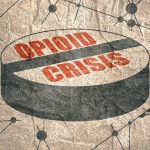
Ian Hamilton considers a new Lancet Psychiatry systematic review and meta-analysis that examines the effectiveness of buprenorphine versus methadone for the treatment of opioid dependence, drawing from observational and randomised controlled studies.
[read the full story...]





